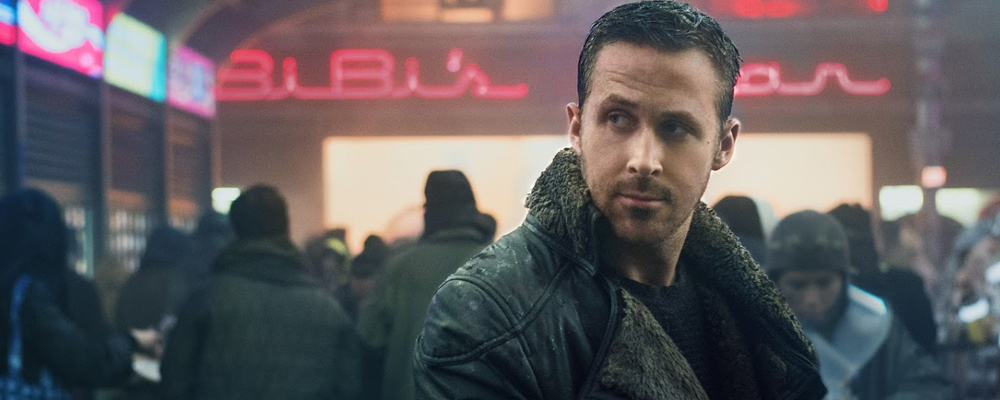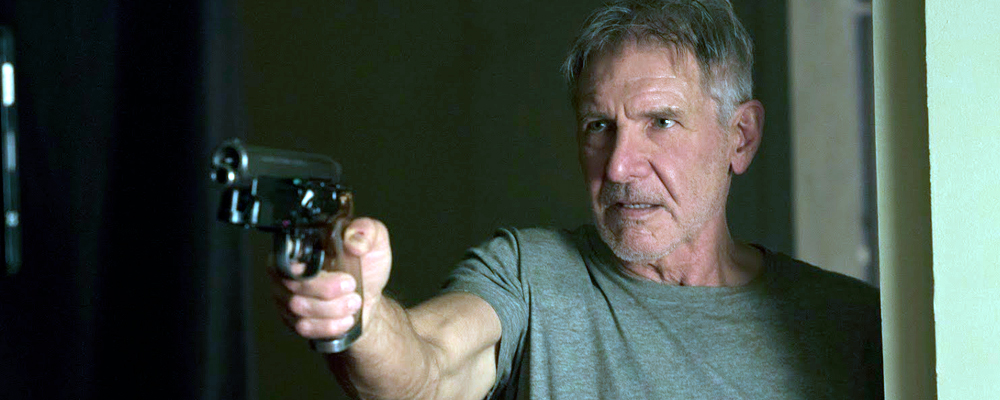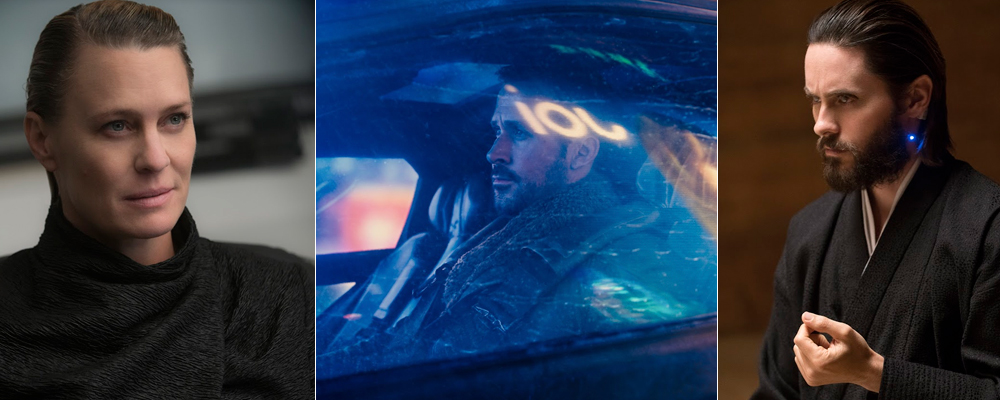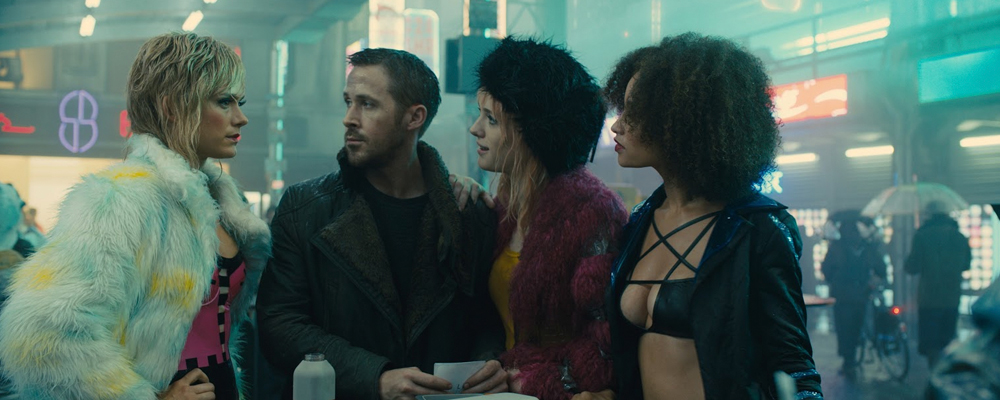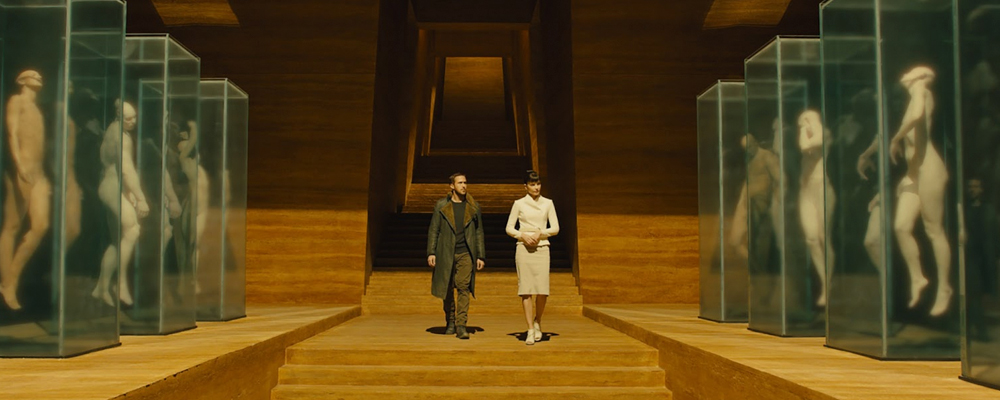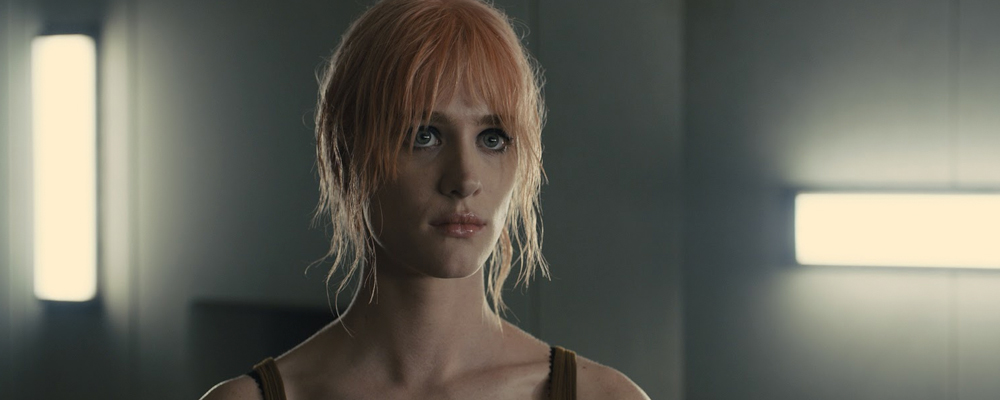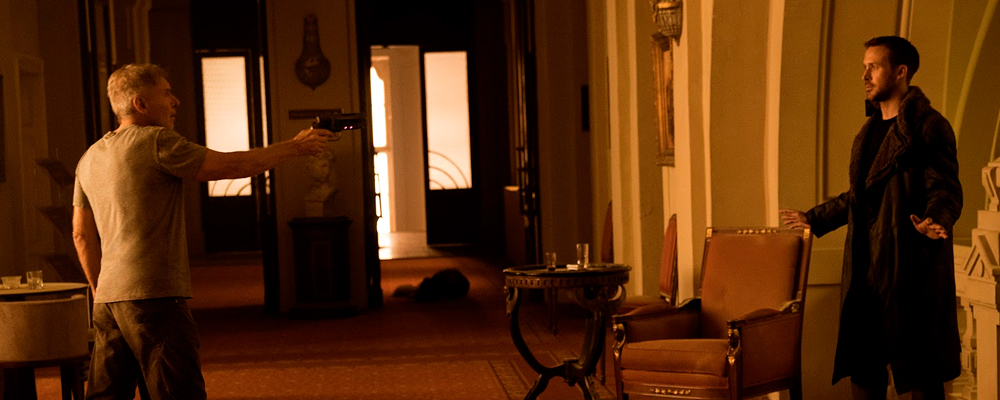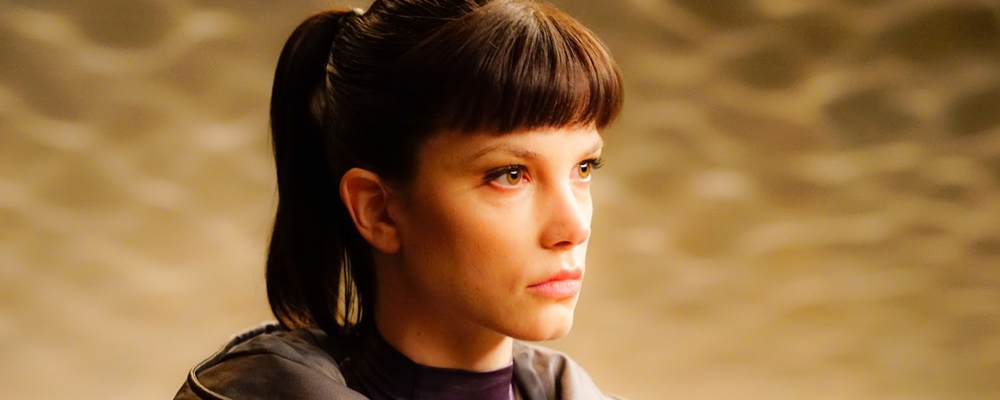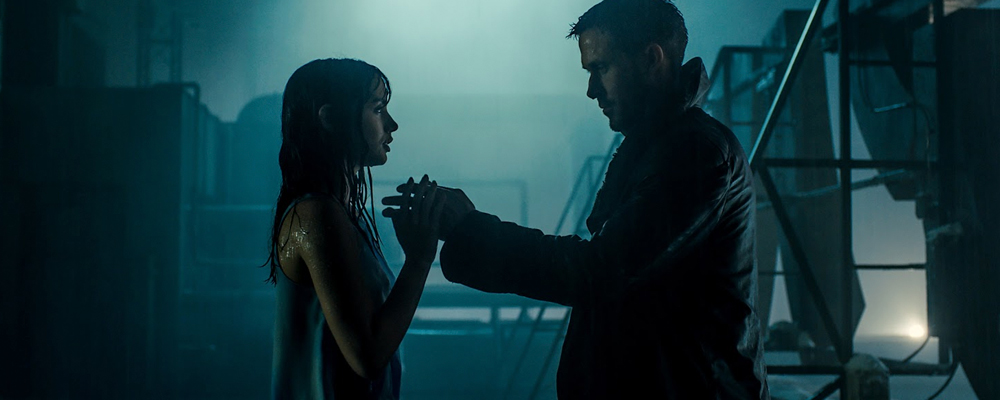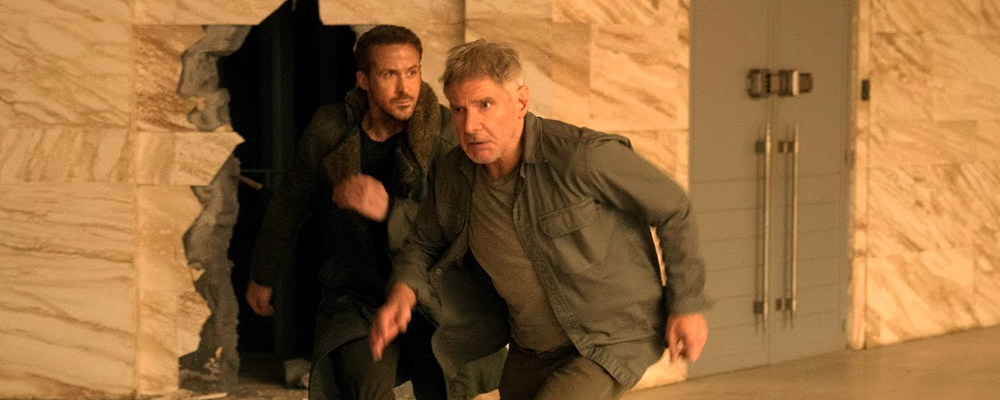‘Blade Runner 2049’ Is a Hollywood Reboot Done Right
Alex Aronson
In the race of prolonged sequels, “Blade Runner” certainly applies for the top honor. During the course of the 35 years since the original film saturated theaters with a mere $35 million gross, “Blade Runner” has accumulated classic cult status. The dedicated cult attraction to the film grew so much over the past three-decades that Warner Bros. felt it appropriate to deem a $150 million sequel. The longevity is due, in part, to its unique take on dystopian science fiction thrillers with plenty of visual splendor. Among its cult of fans is beau Ryan Gosling – who streamlined the follow-up, subtitled “2049.”
The film opens with text that catches the viewer up to speed with everything that has gone on during the last three decades. Niander Wallace, a blind scientist, played by a slick Jared Leto, has solved the global food crisis with his ideas for synthetic modification and takes over the bankrupt Tyrell Corporation responsible for creating the initial model of replicants. Wallace’s new company mission creates a next-generation line of androids, more compliant than those that came before. Their initiative is to hunt and “retire” the refractory line that came before them and refused to partake in the slave labor they were intentionally created for.
Suffice it to say, Officer K (Ryan Gosling) is part of the new generation targeting the archaic line of boisterous androids who refuse to “retire” without a fight. He works for the LAPD under the instruction of Lieutenant Joshi (Robin Wright). K is a hard worker, happy to do the job and come home to his hologram partner, Joi (Ana de Armas).
The grassless world of the dystopian set “Blade Runner” is much bleaker than contemporaries, “The Hunger Games” or “Maze Runner.” Set in Los Angeles 2049, pollution has clouded the sky to allow barely any sunlight, buildings appear more like metal zombified fortresses, technology has become strikingly interactive and eerily too realistic, and the people altogether seem arguably more aggressive and hostile. Perhaps a real-world commentary of what is to come.
Director Denis Villeneuve, who previously helmed last year’s visceral science fiction hit “Arrival,” frames the update with much care for the original canon. Much like JJ Abrams’ “Star Wars,” Villeneuve’s “2049” is a worthy companion and continuation to the original while also providing a fresh coat of paint.
Throughout his journey, K becomes entangled in an investigation that inevitably leads him down an overly complicated path to connect with Rick Deckard (Harrison Ford), the original blade runner. For Ford, this is the third franchise reboot the veteran actor has been grandfathered. However, following “Indiana Jones” and “Stars Wars,” “Blade Runner” is quite befitting.
While the spectacle visuals are gleaming, the film is perhaps a bit busy. The plot makes a lot of twists and turns that maybe would have better suited the structure of an episodic Netflix series revival. A trimmed first act that cut to the action would have smoothed out the overly long, nearly three-hour, runtime. But in the case of event cinema “Blade Runner 2049” is well worth the price of admission.
“Blade Runner 2049” opens in theaters Oct. 6.

